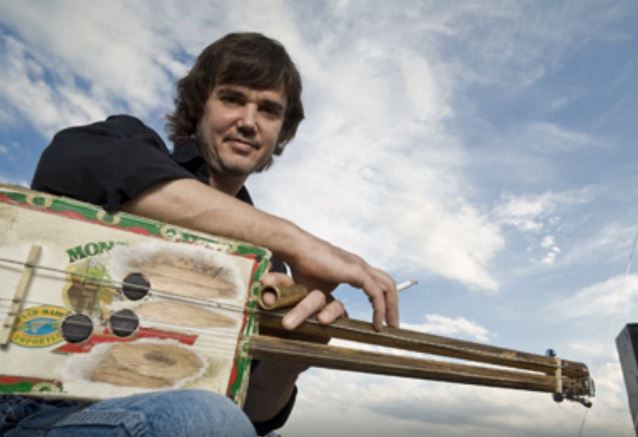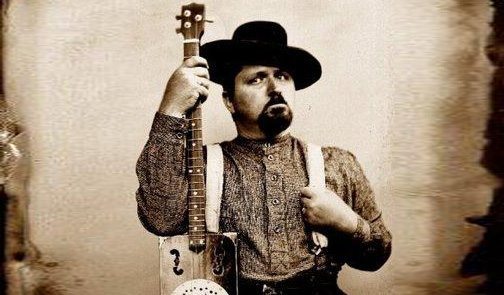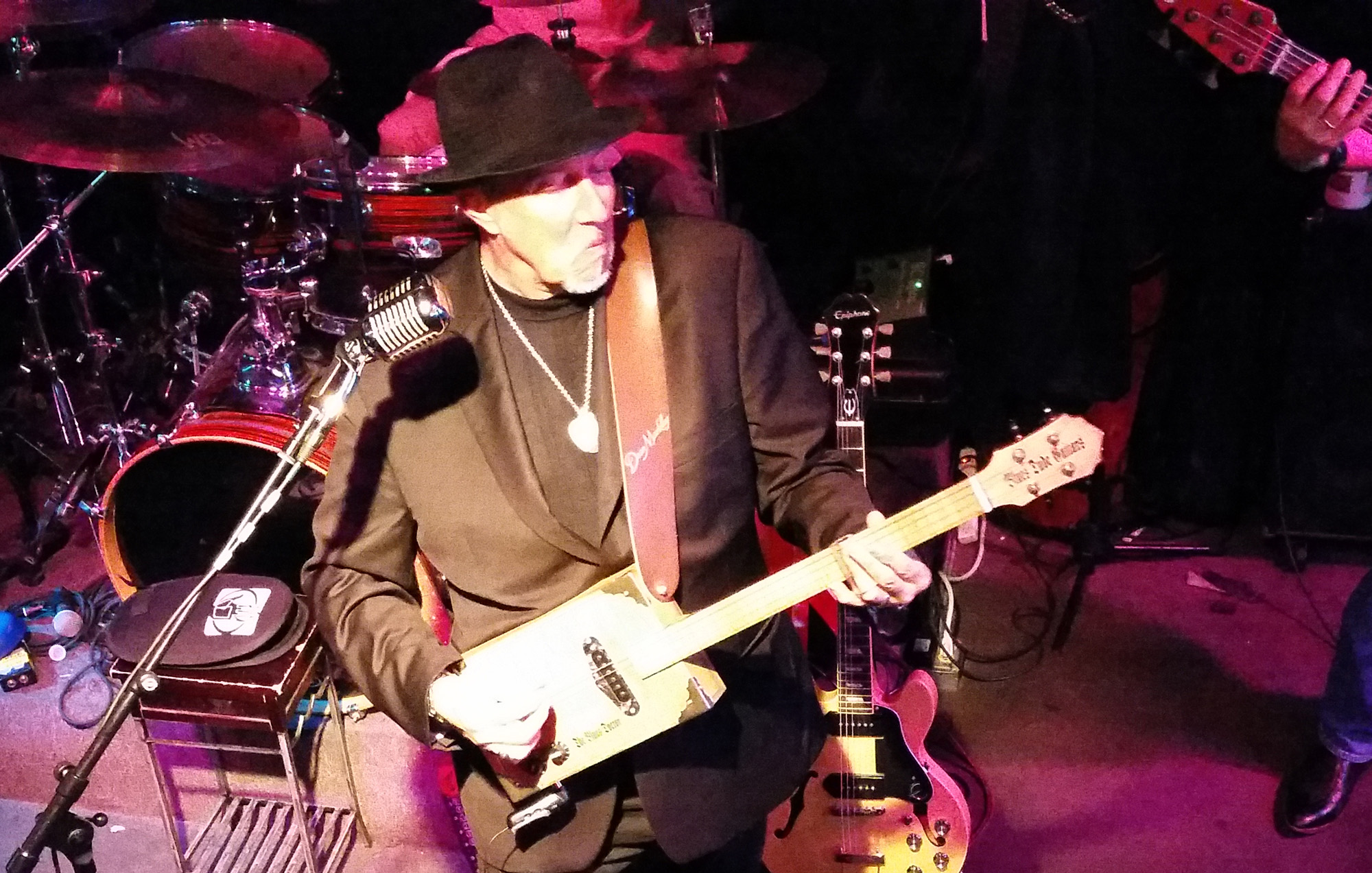Musical styles: Delta, Deep South, Swamp Blues
Handmade instruments played: Banjukimer, cigar box guitar, license plate guitar, ukulele, Lowebow…
Texas-born, Alabama-raised Dan Russell was presented a particular challenge at an early age. This one challenge, that ultimately helped to give him his stage name, is also what helps to set his music apart from the rest of the blues performers that can be seen busking southern city sidewalks. One Hand Dan has used the namesake of his challenge to enthusiastically roll through life, performing with grit and gusto.
Despite his mono manual operations, as a youth Dan learned how to succeed in sports like football and studied several martial arts. Taking his flair for the competitive a bit further, Dan worked as a professional wrestler for thirteen years, incorporating some ukulele and banjo performances into his act. Being bitten by the bug to perform in a different capacity, Dan found his love for playing music stoked by trying his hand at bottleneck slide guitar.
Dan began busking the streets of Florence, Alabama and across the Tennessee River in Muscle Shoals. He brought his love for the Delta Blues to the sidewalks and his unique personality to his music. Knowing how to play multiple stringed instruments and incorporating them into his performances proved to be problematic in the event that a speedy exit sometimes needed to be made from his spot on the sidewalk. Dan solved some of his gear issues by getting himself a three-necked cigar box guitar. In doing so he carved out a spot for himself in not only the blues but also the handmade musical instrument community. This iconic instrument which came to be known as a Banjukimer (built by John Nickel and Jason Maaz of Nickel Cigar Box Guitars).
His collection of instruments has grown to include ukuleles handmade with various tins, license plate and cigar box guitars all played with Dan’s unique style and aplomb. He continues his street performances, playing in various venues across the country, and has released an album on C. B. Gitty Records.
Visit Dan’s website: http://artistecard.com/onehanddan








